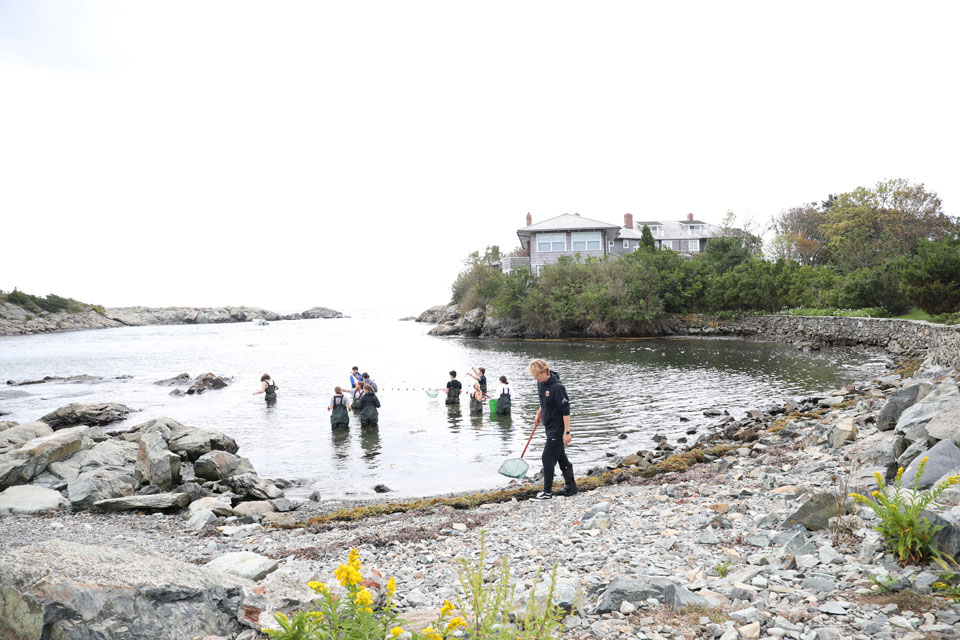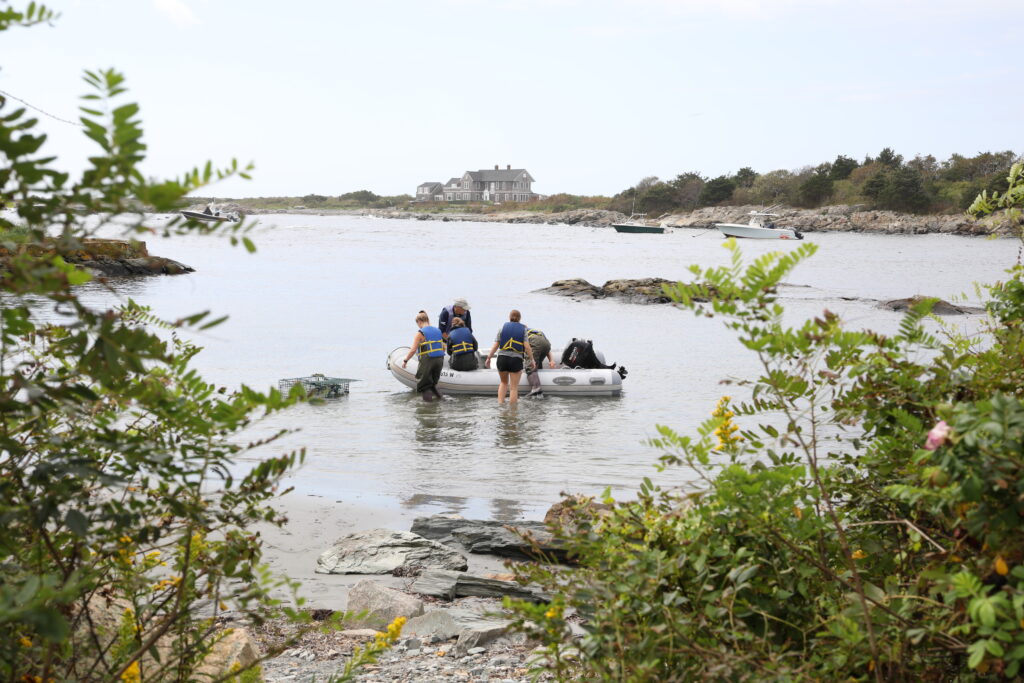Salve receives National Science Foundation grant for innovative program supporting STEM student development

Salve Regina announced that it has been awarded a $1M grant from the National Science Foundation (NSF) geared specifically for student development. The project, entitled “Supporting STEM Scholars to Engage in the Blue Economy,” contributes to the national need for a diverse and capable workforce of scientists, mathematicians, engineers and technicians by increasing STEM degree completion of high-achieving, low-income students.
Over its six-year duration, the project will fund scholarships for 16 full-time students with demonstrated financial need who are pursuing bachelor’s degrees in biology, chemistry or mathematics. It will include services and practices to support the retention and graduation of these students from their transition into college to their career search and placement.
The goal is to ensure that 90% of the awarded scholars are retained from their freshman to sophomore years, and that 90% graduate within four years. The program also aims to improve the education of future STEM workers and generate knowledge about academic success, retention, transfer, graduation and academic/career pathways of low-income students.
“The attrition rate for STEM students is high, particularly for those from non-traditional backgrounds,” said Dr. Belinda Barbagallo, associate professor of biology at Salve and principal investigator of the NSF grant project. “With this award we’re able to go beyond scholarships alone and build a scaffolded plan to help students get through all four years. It allows us to take a holistic approach, building a mentoring network, assisting with internship placement, and focusing on cohort-building to create a sense of belonging in the STEM community – best practices that lead to student success.”

Students work on a past science project on the coast alongside Ocean Drive in Newport, Rhode Island.
By partnering with local blue economy — ocean-focused — organizations such as the U.S. Naval Undersea Warfare Center and Save the Bay, the program will prepare Salve students for employment through real-life experiences in the sector, which, is one of the state’s top economic drivers, according to Rhode Island Governor Dan McKee.
Students may also have opportunities at the National Oceanic and Atmospheric Administration’s Marine Operations Center, scheduled to open in 2027 at the Newport Naval Station. They will also have opportunities to rotate through different laboratory and training opportunities in a variety of STEM fields.
“As a mercy institution we measure our success by the positive impact that our students and alumni have on the world, and this program directly aligns with our mission,” said Dr. Kelli J. Armstrong, president of Salve. “The NSF funding will enable opportunities for hands-on experiences in STEM fields for students from all backgrounds. We are incredibly proud of this innovative program and inspired by the NSF’s commitment to create new pipelines of talent in much-needed research areas.”
“Students coming from economically disadvantaged schools don’t always have the opportunity to develop the skills they need to succeed in STEM that first year of college,” added Barbagallo. “This program builds structures to make sure they don’t fall through the cracks. The goal is to make STEM learning and careers more accessible.”
Featured photo is of students working on a past science project on the coast alongside Ocean Drive in Newport, Rhode Island.

